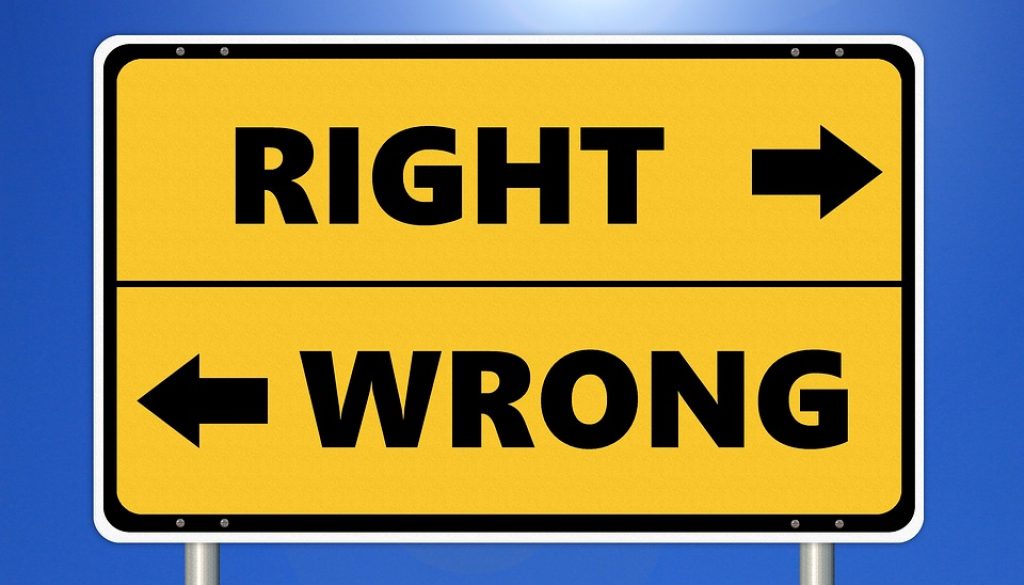Don’t confuse legality with morality

It’s dangerous to assume that just because something is legal or illegal, it is therefore right or wrong.
There is a distinction between what is legal and what is right. After all, the institution of slavery, lack of women’s voting rights, and Nazi treatment of minorities were all perfectly legal, but were also abject moral travesties.
There are certainly many laws which coincide with morality (like laws against initiating violence), and acting in accordance with such laws is moral. However following a law simply because it’s a law demonstrates nothing about one’s virtue. In fact, the moral thing to do is often in complete opposition to the law. For example, when an officer refuses to comply with an order which would victimize an innocent person, the officer is acting outside of his legal duties but acting morally.
When we do the right thing, we don’t require a law forcing us to do it. If a law is forcing us to take an action we otherwise wouldn’t take based on our own moral compass, there’s a good chance the law is not based in morality.




October 4, 2018 @ 2:47 am
Great post. It would seem that Statists often build their moral framework upon the laws in their government. It appears that many do not have a moral compass of their own and choose to rely on the laws to layout the path of righteousness in the eyes of the gov.
The famous Milgram Experiments, testing obedience and whether someone would inflict lethal electrical shocks to another person because they were instructed to do so, gives a glimpse of how calibrated many of the moral compasses are/aren’t.
The NAP, Non-Aggression Principle, is certainly a great place to start reconstructing flawed morality. It is a shame many/most people are unfamiliar with this concept.
October 4, 2018 @ 2:56 am
One interesting takeaway from the Milgram Experiments is the ease and willingness with which people justified their actions by blaming others. Here’s actual text from the experiment notes: “Some obedient participants gave up responsibility for their actions, blaming the experimenter. If anything had happened to the learner, they reasoned, it would have been the experimenter’s fault. Others had transferred the blame to the learner: “He was so stupid and stubborn he deserved to be shocked.”
October 4, 2018 @ 3:17 am
Ayn Rand, in her book Atlas Shrugged, really pushed this issue, passing the blame/responsibility on to someone else, into the spotlight. Her story demonstrated how a society could fail due to large numbers of individuals continuously positioning themselves to be blameless of any responsibility/decision. This is truly a tragic game of hot potato.
October 4, 2018 @ 12:40 pm
Yes, having a scapegoat is generally far easier than stepping back and looking at the big picture. Quick blame is far more convenient, requiring no reflection or closer examination.
October 4, 2018 @ 2:50 am
Glad you mentioned the NAP. There’s more information on that here: https://www.logicalhumanitarian.com/dont-confuse-legality-with-morality/